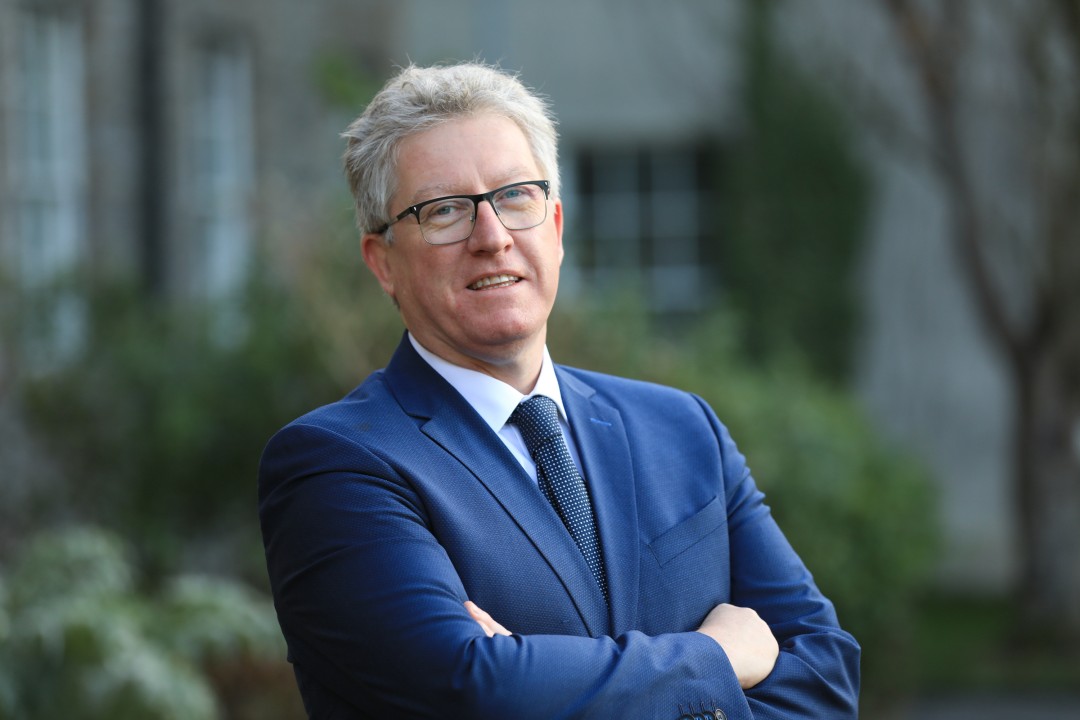
"These are skills that employers are increasingly looking for as they seek to ensure that their organisations and employees are future-capable."
“It is always wise to look ahead,” Churchill quipped, “but difficult to look further than you can see”. That, however, is the expectation of educators, that they prepare students to flourish in an unimagined future. This task has been compounded by the pace of change which characterises contemporary society and the challenge it has presented to the mission of the higher education sector itself.
For centuries, universities were judged on their ability to generate knowledge and ‘prepare’ graduates who were qualified in their chosen field. But in a rapidly changing landscape, there is an increasing acknowledgement of the need to produce graduates who possess more than disciplinary expertise and knowledge. That expectation is at the heart of ‘DCU Futures’, a radical reimagination of our university curriculum to prepare students for an unscripted world.
It is clear that the 21st-century graduate must be equipped with key transversal skills — personal attributes that are applicable to a wide range of settings, scenarios and life experiences. This year is the European Year of Skills, and the need to advance the transversal skills agenda has long been highlighted by the European Union, the OECD and others. In 2019, the EU Commission report ‘The Changing Nature of Work and Skills in the Digital Age’ predicted that this decade's biggest jobs growth would be in roles requiring ‘intensive use of social and interpretative skills’. Indeed, the critical importance of this skill set was also highlighted in the recent OECD review of Ireland's skills strategy.
These are skills that employers are increasingly looking for as they seek to ensure that their organisations and employees are future-capable. They want employees who, in addition to sector-specific expertise, have strong transversal skills and are enabled to reframe uncertainty as an opportunity, embrace challenges, and adapt to change. For example, skills such as creative and critical thinking can help to identify and solve problems; teamwork and ethical decision-making benefit teams as they collaborate on tackling complex challenges, and entrepreneurship, leadership, and project management, enable us to identify and pursue opportunities.

Many higher education institutions are embracing the task of integrating these skills into the curriculum. At Dublin City University, our approach is centered on DCU Futures — the biggest curriculum innovation in the history of the University. With transversal skills at its core, it also brings us back to our roots and connects us with our DCU-DNA.
Initially, a suite of ten new programmes was created, including transdisciplinary bachelor’s degrees, such as Psychology and Disruptive Technologies, Energy/Sustainable Systems Engineering, Digital Business and Innovation, and Chemistry with Artificial Intelligence — each of which has a strong emphasis on 'challenge-based learning'. This approach features projects developed in collaboration with industry and employers, and focuses on the explicit development of students’ transversal skills, regardless of their programme.
The courses exemplify a broader DCU Futures philosophy that is gradually being embedded across all undergraduate degrees. As part of this, the University is leading the way nationally and internationally in developing an approach to map, integrate, assess and evidence students’ transversal skills, so that they will graduate with a personalised skills profile based upon their experiences within their programmes. Such an undertaking is immensely challenging for various reasons. However, this is not a reason to avoid the challenge, as the case for transversal skills is irrefutable, with many of the ‘wicked problems’ we face the result not of a lack of knowledge, but of a deficit in these skills.
At DCU, we have learned that to succeed in this task requires an investment of time, energy, intellect and, to varying degrees, financial resources. The initial suite was made possible by an award from the National Training Fund under the Government’s competitive ‘Human Capital Initiative’ (2019). Quality teaching and learning is expensive, and challenging in an environment of constrained resources and the reduced student-staff ratios, as highlighted by Prof Orla Feely at her inauguration as President of UCD. However, the rewards from engaged challenge-based learning are immense.

It would be easy to regard the transversal skills agenda simply as a response to the demands of industry and employers. That is not the case. In this time of global disruption, these are attributes that are needed by society as a whole. Our society needs active and engaged citizens—people who can think ethically, show leadership and collaborate for the common good. These 'rounded and grounded' graduates deliver on DCU's mission to 'transform lives and societies'.
Finally, it is worth making the point that investing in transversal skills does not imply that we lose focus in any way on disciplinary knowledge and expertise. We need to challenge any such ‘zero-sum game’ narratives. There is a symbiotic relationship between knowledge and transversal skills. During the pandemic, we saw this in action on a daily basis. University researchers used their communication skills to explain complex scientific information about the Covid-19 virus. During the mass vaccination campaign, we saw agility, leadership, resilience and collaboration in action. All of which ensured that our citizens received healthcare to the highest clinical standards.
Of course, transversal skills, such as critical thinking and communication, have for centuries been a central component of Higher Education. [1] It's now time for us to prioritise a wider set of skills that can ensure not just the sustainable development of our organisations and societies, but of humanity itself.
[1] See what #WorkReadySkills our students and learners have gained on www.iua.ie/skills